
Amidst the aftermath of the pandemic, a profound revelation has brought the educational landscape into sharp focus: local challenges laid bare, opportunities obscured, calling for a transformative collective effort to uproot entrenched disparities and cultivate inclusive education for all. Leading this charge against educational inequities are the Equitable Education Fund (EEF) Thailand and the Department of Local Administration (DLA). The EEF, true to its name, spearheads comprehensive strategies to narrow educational gaps through financial aid, capacity building, policy advocacy, and community engagement. Parallel to this, the DLA plays a pivotal role in guiding local administrative bodies towards effective policy implementation, recognizing that collaborative endeavors with relevant agencies amplify impact. Together, the EEF and DLA forge partnerships to foster an inclusive educational environment where every individual has equitable opportunities to thrive and contribute to societal advancement.
This article delves into their collaborative efforts, showcasing how the EEF and DLA synergize agencies and mobilize resources with precision. This allows us to see the Education Security System in a new, collective light, as capable of integrating seamlessly with other educational innovations to create a more comprehensive and effective support system, akin to a tighter-knit safety net that ensures no student slips through the gaps.
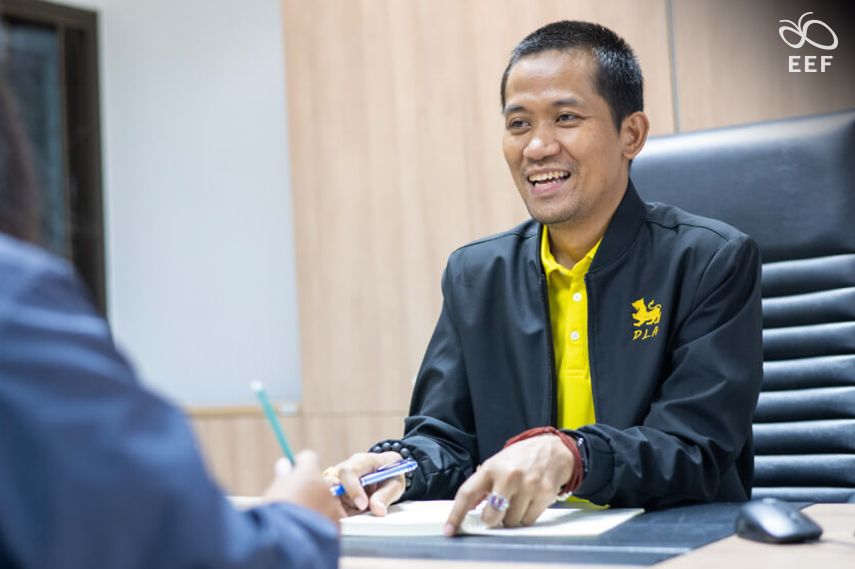
Over the past five years, the EEF and DLA have joined forces to significantly reduce educational disparities within schools affiliated with local administrative organizations. Central to their mission is enhancing the “Educational Security System,“ particularly for socio-economically disadvantaged children and youth. This partnership has introduced robust mechanisms for integrating student data and conducting nationwide screenings, leading to transformative reforms in funding allocation. The most recent innovation includes a groundbreaking progressive scale approach to the Equity Fund scholarship initiative, which significantly boosts annual support to 4,200 Thai Baht per person. Through data-driven strategies, tailored support has annually reached over 25,000 students in these schools, fostering an inclusive and equitable learning environment. With that being said, beyond the Educational Security System’s foundational framework, the EEF and DLA have expanded their collaboration to encompass broader initiatives.
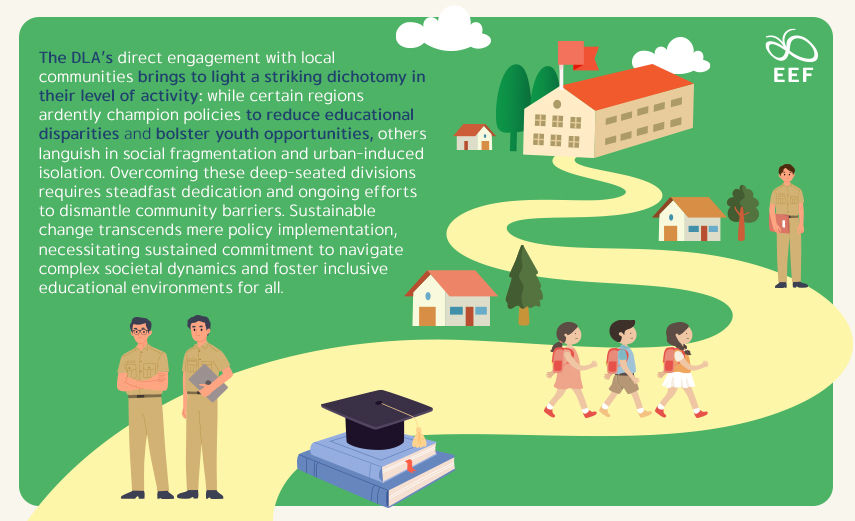
The DLA’s direct engagement with local communities brings to light a striking dichotomy in their level of activity: while certain regions ardently champion policies to reduce educational disparities and bolster youth opportunities, others languish in social fragmentation and urban-induced isolation. Overcoming these deep-seated divisions requires steadfast dedication and ongoing efforts to dismantle community barriers. Sustainable change transcends mere policy implementation, necessitating sustained commitment to navigate complex societal dynamics and foster inclusive educational environments for all.
For instance, consider a local administrative organization-affiliated school in Chiang Rai, where visionary leadership has spearheaded innovative strategies to meet student needs and mitigate dropout rates. This approach involves customized curricula aligned with students’ real-world interests and talents, empowering them to excel and earn income during their studies. Such a holistic flexible educational model — akin to the pioneering “1-School-3-System” model of the EEF’s Thailand Zero Dropout initiative — not only equips graduates with essential skills but also cultivates pathways to self-sufficiency. These achievements stand as a testament to the committed collaborative efforts among local administrators and school staff who share a unified educational vision, persevering through challenges posed by social fragmentation and urban-induced isolation.
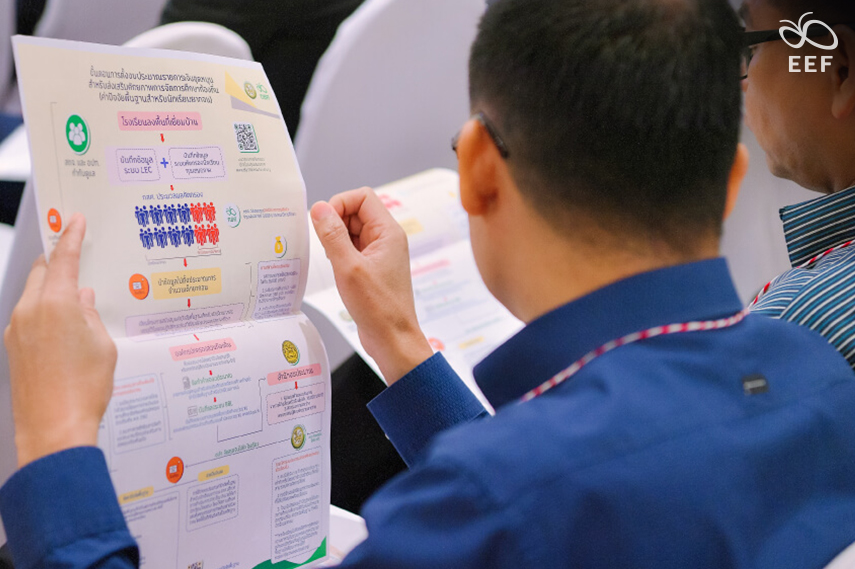
Nevertheless, in its quest to unify local personnel behind a cohesive vision for school advancement, the DLA encounters another stark contrast, this time in terms of their levels of readiness for change. More often than not policies proven successful in one school falter in others. Essential to enhancing local schools is fostering community awareness of their intrinsic worth and galvanizing collaborative efforts for future improvements, and such transformations are typically spearheaded by influential community leaders.
For example, in numerous communities, inspirational figures recruited by the EEF have been strategically deployed to ignite local passion and steer communities toward positive transformations. This initiative has demonstrated effectiveness in reshaping schools to more effectively confront educational disparities, thereby ensuring universal access to education for all children. By highlighting the intrinsic value of education within communities, these figures have helped foster a deepened awareness of the importance of local schools. This heightened awareness has, in turn, unified local personnel behind a cohesive vision and galvanized collaborative efforts among stakeholders to drive continuous school improvements, promote inclusivity, and foster educational excellence.
Striving to promote inclusivity and enhance excellence, the DLA faces challenges from varying levels of expertise and guidance across Thailand. Local authorities, mandated by the constitution to provide public services and promote sustainable development, often struggle with disparities in resources, training, and capacity that often hinder the uniform implementation of educational policies and initiatives nationwide. Addressing these issues requires targeted efforts to strengthen local capabilities, improve regional coordination, and align educational strategies with broader developmental goals.
The collaboration between the Pattani Provincial Administrative Organization and the EEF exemplifies how local officials have developed essential tools to identify and assist vulnerable children and youth based on localized data. This has led to advancements in case identification and assistance, funding allocation, and student data integration across various agencies — from education to healthcare — ensuring holistic well-being. Additionally, the partnership has leveraged local cultural capital to create inclusive learning environments that respect diverse backgrounds. This approach not only reduces educational disparities but also fosters pride, identity, and resilience within the community, contributing to sustainable development and societal well-being, as outlined in Thailand’s constitutional mandate.
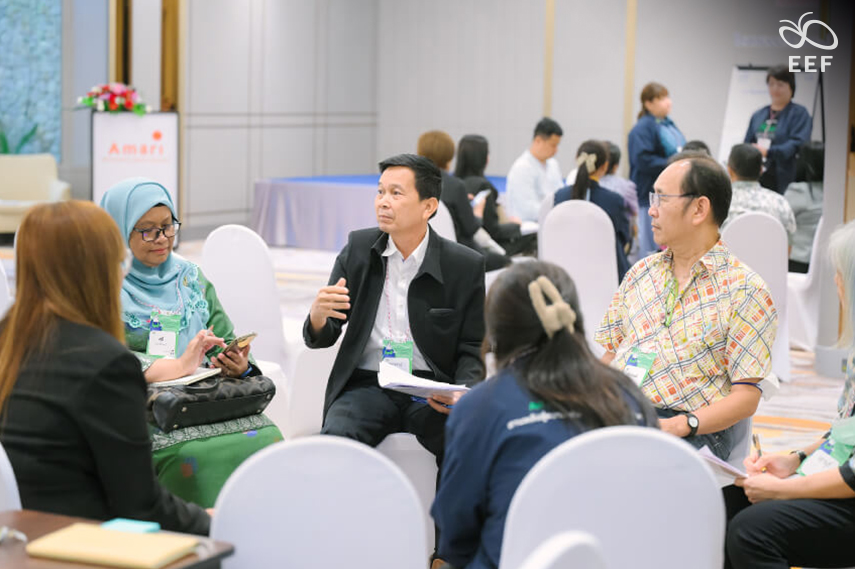
The EEF and DLA are pivotal in transforming Thailand’s educational landscape, particularly in regions like Chiang Rai and Pattani, where their collaboration has introduced innovative approaches to address local educational disparities with precision. Through customized curricula and strategic interventions, students are empowered to excel in diverse environments, ensuring not only academic success but also pathways to self-sufficiency. This localized success underscores the EEF’s commitment to inclusive education, complemented by the DLA’s efforts to unify and strengthen local educational systems. Together, they spearhead a broader initiative toward a unified Education Security System, poised to integrate various educational endeavors seamlessly.
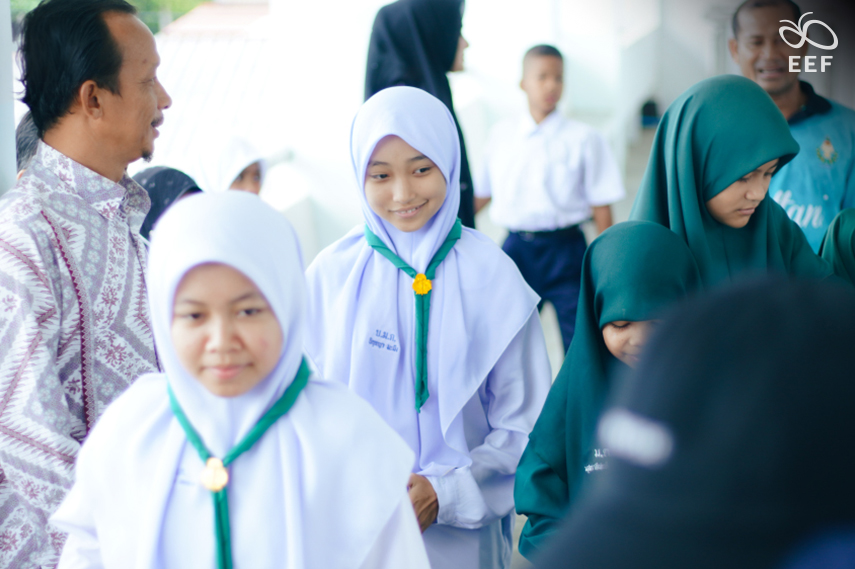
A notable exemplar within this framework is OBEC CARE, a significant initiative by Thailand’s Ministry of Education (MOE) designed to comprehensively support and safeguard students across the country. Developed in collaboration with educational and social welfare agencies, OBEC CARE leverages multidimensional data to address diverse student needs and risks effectively, ensuring timely interventions and robust support mechanisms. Harnessing advanced information systems, equips educators with profound insights into student well-being, enabling proactive assistance and enhancing overall educational outcomes. This proactive approach not only prioritizes academic progress but also nurtures holistic student development, vital for fostering resilient and thriving communities within Thai schools. OBEC CARE has been piloted in over 1,050 schools in 28 educational districts. Plans aim to expand nationwide, promising a comprehensive strategy to diminish educational disparities while enhancing community resilience.
While the partnership between the EEF and DLA begins with the Education Security System, its impact extends far beyond mere data integration and funding allocation. This collaboration serves as a transformative force for inclusive education, empowering students to thrive and fostering broader societal changes such as social cohesion, pride, identity, and resilience. By navigating complex educational challenges, they set a precedent for sustainable development through equitable access to education across Thailand. As the EEF and DLA continue to innovate and collaborate, they are shaping a future where every student has the opportunity to excel, making meaningful contributions to their communities and beyond.

The Equitable Education Fund (EEF) Thailand stands at the forefront of transforming Thailand’s educational landscape through its innovative approaches and strategic collaborations. By spearheading the Education Security System in collaboration with the Department of Local Administration (DLA), the EEF has not only reduced educational disparities but also empowered students with the skills and opportunities needed for sustainable success. Beyond these achievements, the EEF’s commitment to inclusive education extends to fostering community pride and resilience, ensuring that every child has equitable access to quality education regardless of background. As the EEF continues to navigate complex societal dynamics and champion sustainable development goals, its collaborative efforts serve as a beacon of hope and progress, setting a precedent for bridging educational disparities nationwide and creating a more inclusive and prosperous future for all.

